- Home
- Sustainability
- Environment
- Responding to Climate Change
- Participation and Sponsorship to Climate Change-Related Initiatives
Participation and Sponsorship to Climate Change-Related Initiatives
- Expression for Support of the TCFD and TNFD
- Establishment and Certification of Science Based Targets (SBT)
- Progress Towards SBT
- Participation in Race to Zero
- Aiming for 100% Renewable Energy and Joining the RE100
- Progress Towards the RE100 Goal
- Approach to Use 100% Renewable Energy
- Participation in the GX League
Expression for Support of the TCFD and TNFD
- Click here for related information
Establishment and Certification of Science Based Targets (SBT)
As the impact of climate change becomes more urgent globally, companies are being asked to reduce their emissions of greenhouse gases. The Sumitomo Forestry Group has established Group-wide greenhouse gases reduction targets (Scope 1, 2, and 3) for the target year of 2030 and the targets were approved as SBT in July 2018. In order to accelerate our decarbonization efforts, we have raised our greenhouse gases reduction targets (Scope 1 and 2) for 2030 compared to 2017 levels from 21% to 54.6%, which aligns with the 1.5°C target, with a view to achieving net zero emissions by 2050. The target is set in the medium-term management plan that starts in 2022. In order to ensure the implementation of these efforts, we also formulated a transition plan through 2030 to achieve the 2030 target and realize a carbon-neutral society by 2050.
Furthermore, the Sumitomo Forestry Group has newly established a goal to achieve net zero greenhouse gas emissions across the entire value chain by 2050. In accordance with SBT Guidance, we have updated our short-term goals for 2030, and we obtained SBT certification in November 2024. The Sumitomo Forestry Group is striving to reduce greenhouse gas emissions and taking measures to mitigate climate change for achieving SBT such as thorough energy saving activities and promotion of renewable energy use.
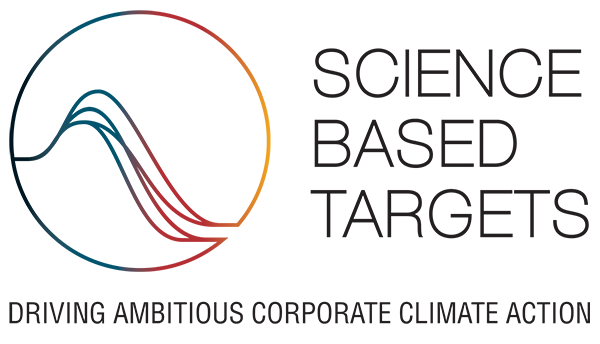
Sumitomo Forestry Group's SBT
Net Zero Target
- Scope 1+2 Reduction Targets: 90% reduction in emissions by 2050 compared to 2021 levels (total amount)
- Scope 3 Reduction Targets: 97% reduction by 2050 compared to 2021 levels (emission intensity per floor area of houses sold) [categories to be reduced: 1, 4, 11]
- Neutralizing residual emissions*1 to achieve net-zero emissions
Short-term target
- Scope 1+2 Reduction Targets: 42% reduction by 2030 compared to 2021 levels (total amount)
- Scope 3 Reduction Targets: 51.6% reduction by 2030 compared to 2021 levels (emission intensity per floor area of houses sold) [categories to be reduced: 1, 11]
FLAG Sector Target
- In accordance with the FLAG Sector Guidance*2, we have signed the declaration required by the SBT Initiative to halt deforestation by December 31, 2025.
*1The term "residual emissions" refers to emissions within the Group's value chain that cannot be reduced by the target year. The concept of achieving net zero involves "neutralizing" these residual emissions outside the value chain through the use of forest carbon sequestration, carbon removal technologies, and other methods.
*2Guidance for setting greenhouse gas reduction targets based on scientific evidence in the forestry, land use, and agriculture sectors
Achievement of 2030 targets (Scope 1 and 2: down 42% by 2030 compared to 2021 levels) and path to carbon neutrality*1 (summary version)
| Items | Measures (Greenhouse Gases Reduction Items) | Greenhouse Gases Emissions Reduction Rate | Impact on profit/loss*2 (million yen / year) |
Note | ||
|---|---|---|---|---|---|---|
| Measures to achieve 42% reduction compared to 2021 | Electricity from renewable energy sources (RE100); excluding New Zealand | -36.6% | -51 | The profit/loss impact is calculated as when everything is procured with renewable energy certificates (price fluctuates depending on the time of year, required quantity, etc.) | ||
| Priority 1: Installation of solar power generation equipment | Installation at own facility, including PPA model | |||||
| Priority 2: Purchase of RE100 compliant electricity | Procurement through Sumirin Denki in Japan | |||||
| Priority 3: Purchase of renewable energy certificates | ||||||
| Reduction of coal co-firing rate for Mombetsu Biomass Electric Power (10% to 0%) | -25.0% | -17 | ||||
| Introduction of electric vehicles in company-owned vehicles in Japan (powered by RE100-compatible electricity) | -5.0% | 321 | The profit/loss impact is the only difference between increased electricity consumption and reduced gasoline and diesel fuel consumption. Excluding vehicle price increases and the cost of installing recharging facilities | |||
| Introduction of electric vehicles for sales personnel's private cars for sales use (in Japan) (powered by RE100-compatible electricity) | -0.5% | 35 | Assuming a 30% adoption rate in 2030 to achieve the Japanese government's goal of 100% electric vehicles in new car sales by 2035 | |||
| Subtotal | -67.1% | 289 | ||||
| Additional measures to achieve the 2030 target or to become carbon neutral | Reduction of coal co-firing rate for Mombetsu Biomass Electric Power (10% to 0%): additional reduction | -13.6% | ||||
| Electrification of energy other than electricity (RE100 compatible electricity), etc. | -12.8% | |||||
| Manufacturing plants, etc.: equipment, heavy machinery, vesseles, boilers, backup power sources, etc. | -4.3% | |||||
| Introduction of electric vehicles for sales personnel's private cars for sales use: 100% | -1.1% | |||||
| Heating of offices and exhibition halls, and laboratory experiments, etc. | -1.5% | |||||
| Introduction of electric vehicles in company-owned vehicles (overseas) | -3.0% | |||||
| Use of natural gas in nursing homes | -1.0% | |||||
| Forestry Business: Heavy equipment, motor boats, fuel for power generation, etc. | -1.6% | |||||
| Biomass power generation/start at power generation | -0.2% | |||||
| Biomass power generation/wood fuel (dinitrogen monoxide, methane) | -0.7% | Consideration of creating new credits using BECCS*3, offsetting by forests, etc. | ||||
| Manufacturing facilities/biomass boilers, etc. (dinitrogen monoxide, methane) | -1.3% | Same as above | ||||
| New Zealand (country) electricity RE100 conversion | -4.6% | Target: to be achieved in 2035 | ||||
| Performance and business growth | In principle, increase will be absorbed by each division unit, since business conditions nor scale (emission volume) are unknown | |||||
| Emission trading | Consider trading of emission credits based on achievement of SBT lines at division unit level, if necessary | |||||
| Subtotal | -33.0% | |||||
| Total | -100% | |||||
*1Transition plan formulated by Sumitomo Forestry to achieve the fiscal 2030 target set in the Medium-Term Management Plan.
*2Impact on profit/loss excludes personnel and other indirect expenses
*3Bioenergy with Carbon Capture and Storage. Technology to capture CO2 emitted during the use of biomass fuels and store it underground
Progress Towards SBT
In fiscal 2024, Scope 1 and 2 emissions decreased by 23.4% compared to fiscal 2023 due to a reduction in coal consumption at the Mombetsu Biomass Power Plant and the introduction of renewable energy. The emission intensity per floor area of houses sold in Scope 3 Categories 1 and 11 decreased by 3.5% compared to fiscal 2023 due to reductions in emission intensity in the construction and real estate businesses (North America and Australia).
Progress toward our science-based reduction target: Scope 1 and 2
42% reduction by 2030 compared to 2021 (total emissions)
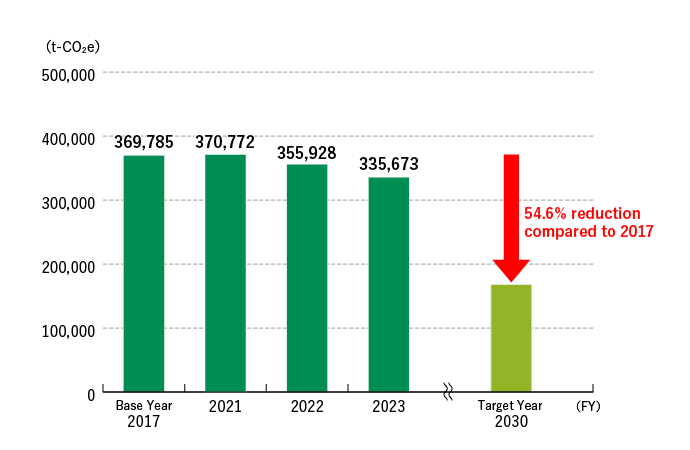
SBT Progress Trend: Scope 3 (Categories 1 + 11)/Floor Area of Houses Sold
Reduce by 2030 the emission intensity of Categories 1 and 11 combined per floor area of houses sold by 51.6% compared to 2021.
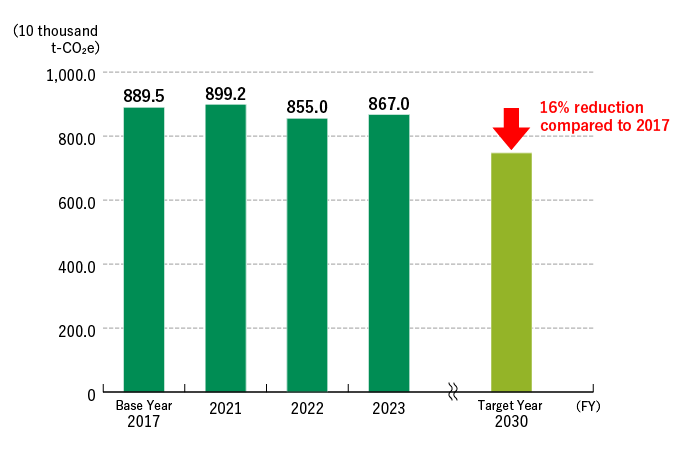
Participation in Race to Zero
Race to Zero is an international campaign calling on companies, municipalities, investors, universities, and other nongovernmental actors around the world to commit to halving their emissions by 2030 and achieving virtually zero greenhouse gas emissions by 2050, and to take immediate action to achieve this goal.
Sumitomo Forestry participated in the Race to Zero through Business Ambition for 1.5°C in September 2021, ahead of the 26th Conference of the Parties to the United Nations Framework Convention on Climate Change (COP26) held in Glasgow, UK.
By signing the Business Ambition for 1.5°C, we are declaring our commitment to net zero by 2050, and our participation in Race to Zero was announced at COP26, held in October through November 2021.
Aiming for 100% Renewable Energy and Joining the RE100
The Sumitomo Forestry Group positions the realization of carbon neutrality by leveraging forests and wood resources as one material issue that needs to be addressed and strives to engage in energy-saving activities and use of renewable energy. As part of these initiatives, we joined the international RE100* initiative that aims for 100% of electricity used to be from renewable energy in March 2020 to accelerate our efforts to reduce greenhouse gases.
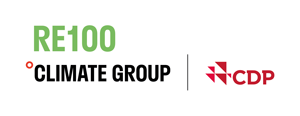
By 2040, we aim to utilize 100% renewable energy for the electricity used for our Group business activities and for the fuel for our power generation operations.
*RE100 is an international initiative run jointly by The Climate Group, a global environmental NGO.
Progress Towards the RE100 Goal
In fiscal 2024, amount of renewable energy introduced in the electricity used in Sumitomo Forestry Group's business activities resulted in 39.8% of the total amount of electricity used by the entire Group, such as solar panels installed in model homes and for private use of power generated by biomass power generation plants (including adjacent wood chip manufacturing plants for fuel), etc. This is an increase of 20.2 percentage points from fiscal 2023. In addition, ratio of biomass-derived fuel to the fuel consumption of the power generation business is 95.6% (calorific value conversion).
In the Mid-Term Sustainability Targets Phase 2 (2025 -2027), which starts in 2025, we have set a target of 66.3%* of the Group's electricity consumption from renewable energy sources in FY2027 with the aim of achieving RE100 by 2030, which is achievable through our own efforts.
*Excluding offices and other facilities in New Zealand, where the national government is aiming for RE100 in 2035 (The renewable energy adoption rate for fiscal 2024 excluding these facilities is 41.4%.)
Renewable energy consumption rate within the power consumption of the entire group
(FY 2024)
39.8%
Approach to Use 100% Renewable Energy
In order to achieve 100% renewable energy for the electricity for Sumitomo Forestry Group's operations, we are planning to utilize Sumirin Denki, which we started in 2019, and install solar power generation systems at our domestic and overseas plants. Furthermore, we will consider a diverse range of procurement methods that take advantage of programs in each country we operate while aiming to use 100% renewable energy.
Utilizing Sumirin Denki Solar Power Generation for Domestic Electricity Use
Sumitomo Forestry started the "Sumirin Denki" service in November 2019 for owners of Sumitomo Forestry homes and owners who have solar power installed by Sumitomo Forestry Home Tech's homes. The service offers surplus electricity purchase and power supply agency sales for owners whose solar power generation purchase period expires under the feed-in tariff (FIT) for renewable energy.
We are working to allocate this "Sumirin Denki" to the electricity used by Sumitomo Forestry Group in Japan. We promote the RE100 initiative by utilizing the surplus solar power purchased from the owners with "Sumirin Denki" at our offices and model homes. As of December 2024, the number of contracts was 7,268, an increase of 2,377 from fiscal 2023. Furthermore, we have been supplying renewable energy electricity purchased from owners to exhibition halls and some sales offices nationwide (217 exhibition halls and 10 sales offices as of December 2024) since 2023. In the future, we will accelerate the promotion of the "Sumirin Denki" services to the owners and strive to increase the availability of renewable energy.

Expanding the Use of Renewable Energy at Manufacturing Plants
As Sumitomo Forestry Group, our manufacturing facilities account for about 34% of our total greenhouse gas emissions. To achieve RE100, it is vital that we conserve energy and expand the use of renewable energy in our factories.
In September 2020, Sumitomo Forestry Crest Kashima Plant, which manufactures interior materials for houses, introduced solar power generation under the PPA (Power Purchase Agreement) model*. We purchased non-fossil certificates with tracking for electricity not generated by solar power, and Kashima plant has achieved RE100 and Shizuoka plant RE50 as of December 2024. These initiatives contributed to a reduction of 1,868 t-CO2 emissions in fiscal 2024.
We are also promoting the adoption of renewable energy at our overseas manufacturing sites. At our manufacturing site AST Indonesia in Indonesia, the installation of a 2.2 MW rooftop solar power generation system, selected under the Ministry of the Environment's FY2021 JCM Equipment Subsidy Program, was completed in March 2024. In fiscal 2024, this system reduced CO2 emissions by approximately 2,000 tons. Also, renewable energy certificates (I-REC) were procured by KTI and SRP in Indonesia, VECO in Vietnam, and PAP in Thailand, resulting in a reduction of about 23,000 tons of CO2 emissions.
Both in Japan and overseas, the Sumitomo Forestry Group is considering the installation and expansion of solar power panels in our manufacturing sites in an ongoing effort to increase the ratio of renewable energy.
*A system whereby a host loans out factory rooftop space to a power generation company to install solar power generation panels and then purchases the electricity generated from these panels for its own use
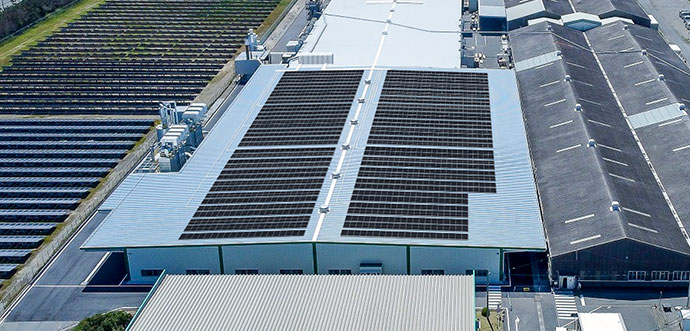
Exterior view of the Kashima Factory
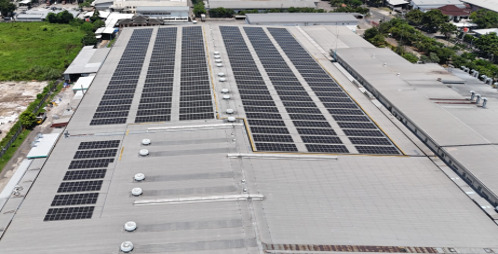
AST Indonesia plant / Roof-mounted solar power generation system (Plant 1)
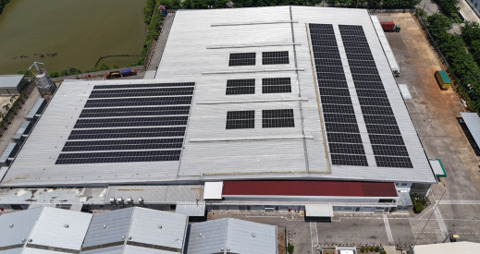
AST Indonesia Plant 2
Overseas Sites Initiatives
The manufacturing business of the Sumitomo Forestry Group accounts for approximately 80% of the total CO2 emissions from electricity consumption. In particular, at KTI in Indonesia and VECO in Vietnam, where electricity consumption is high and the emission factor is significant, efforts will be made to introduce renewable energy by 2027.
Also, in the United States and Australia where we are primarily involved in the housing business, we plan to steadily transition to renewable energy thanks to the ability to procure renewable energy at low cost and the issuance of sufficient renewable energy certificates.
Participation in the GX League
In order for Japan to achieve carbon neutrality in 2050 and contribute to global carbon neutrality while enhancing industrial competitiveness, it is important for companies and others to lead the transformation of the entire economic and social system (GX: Green Transformation), including stakeholders other than themselves.
In February 2022, the Ministry of Economy, Trade and Industry (METI) announced the "GX League Basic Concept". The GX League is a forum for companies that are taking on the GX challenges and aiming to achieve sustainable growth in the present and future society to collaborate with a group of companies, government, and academia that are making similar efforts. Under Emissions Trading Scheme (GX-ETS), participating companies set their own emission reduction targets, disclose their progress, and work to achieve targets.
Sumitomo Forestry has been participating in the GX League since 2023 and has been making efforts to reduce emissions.
- Click here for related information
- Home
- Sustainability
- Environment
- Responding to Climate Change
- Participation and Sponsorship to Climate Change-Related Initiatives

